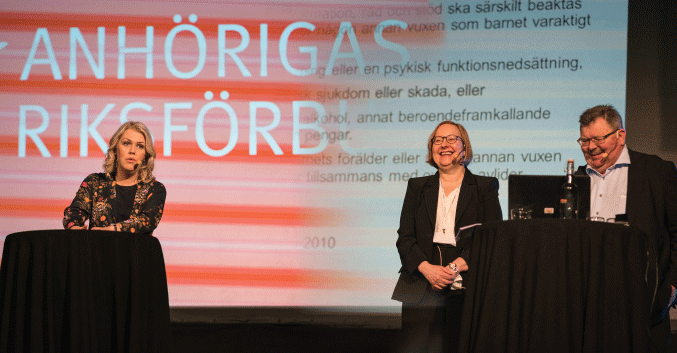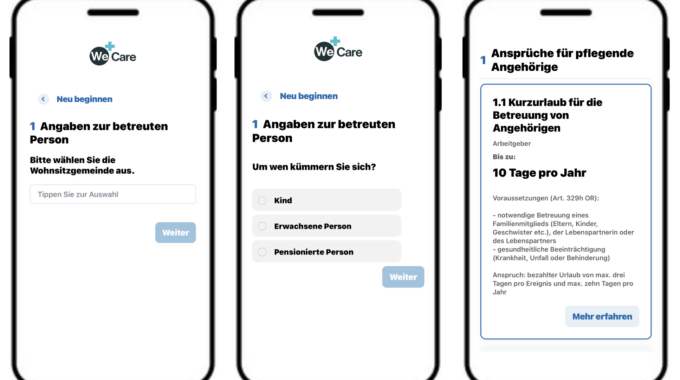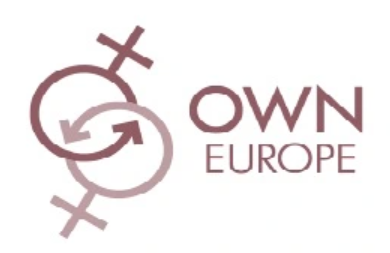
Annual Carers Conference 2019 in Varberg
- The Minister of Health and Social Affairs wants to work towards a national strategy for carers.
- The ME-WE project aims to strengthen young people’s mental health.
The Minister of Health and Social Affairs in Sweden, Lena Hallengren, wants to work towards a national strategy for carers. This was made clear during the 21st Annual Carers conference on May 7-8 in Varberg, West Sweden, organized by Carers Sweden, with the theme of children and young people.
The Minister’s statement was welcomed by the Director of SFCCC, The Swedish Family Care Competence Centre, Lennart Magnusson, and Research Director Elizabeth Hanson.
- I would like to thank you for choosing such an important matter as children as children and young people, said Lena Hallengren.
She stated that new perspectives demand courage and perseverance, and pointed out the importance of further efforts for support structures to help children as next of kin and young carers. At the same time, she made clear that she wanted to act for implementing a national strategy for carers.
During the Carers Conference Elizabeth Hanson and Lennart Magnusson presented the European Horizon 2020 funded project, “ME-WE”.
- The ME-WE project started in January 2018 and will run for 39 months in six different European countries: Italy, the Netherlands, Slovenia, UK, Switzerland and Sweden, all with different systems and views on young carers. We coordinate the project at Linnaeus university and our consortium consists of both researchers and carers organisations with the aim of making a real impact on the mental health and wellbeing of adolescent young carers, said Elizabeth Hanson.
Strengthen young carers’ transition to adulthood
- The ME-WE project targets young carers aged between 15-17 years of age. A critical phase in life, where many young people form their identity and make plans for their future. One of the goals of the project is to raise awareness of the situation of young carers and develop a support program together with young carers with a focus on prevention, she continued.
Work in the first year of the ME-WE project has involved systemising knowledge of young carers, to analyse national policies and legislation in the different countries, as well as carry out reviews of existing good practices that could be potentially relevant to our area of work.
One method of involving young carers within the ME-WE project is the so-called blending learning networks. Here young carers, professionals and members of the project team come together on a regular basis throughout the project.
- Blended learning networks within the ME-WE project are important for reaching out to young carers. There are few arenas where members of different stakeholder groups can meet with each other to discuss issues, problem solve and engage in creative work together. Researchers and professionals also get a chance to really listen to the young carers, said Elizabeth Hanson.
Within the ME-WE project, a special app has also been developed together with young carers from across all the six partner countries. It contains facts on legal and health care issues, chat and group chat functions, the ability to carry out support group exercises, news flow, stories and information on support. All as required by the young carers who participate in the project.
- Within the ME-WE project we have also conducted a survey with the purpose of examining the situation for young carers in Sweden, stated Lennart Magnusson.
The survey was made together with Linnéuniversitetet, among others. Of the 2, 918 surveyed youths, 665 (23 %) are young carers. More than half take care of, help or support a family member and two thirds take care of or support a friend or significant other.
A number of young people do both. According to a Swedish study from 2014, 7 percent of young people in 9th grade do extensive or significant caring activities, counted in either the number of activities carried out and/or how often they carry out caring activities.
With regards to health problems, mental health clearly dominates. From the survey findings, it is clear that young carers are experiencing worse health outcomes than young people who are not carers. Approximately 1 in 6 Swedish respondents state that they don’t feel well. Almost one-third of those who suffer from mental health problems think that their results in school have been negatively affected. Over 10 percent of respondents admit that they have also been subjects of bullying.
Support for family and young carers
- There is still much to do! Support for young carers and families must increase. The needs are especially great when concerning efforts made for families. It is also important to reach out and identify young carers in school and give the support needed for young carers to be able to handle their daily lives and be given equal pre-requisites, emphasized Lennart Magnusson.
Lastly, he welcomed the Minister of Health’s ambition to act for a national strategy for carers.
- A national strategy for carers is not just a matter of health and social care, many more different actors must be involved.
Text: Agneta Berghamre Heins
Photos: Simon Heins





